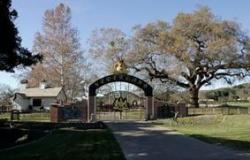The cultural boycott of Russia has given way and the singer has been rehabilitated, as have the main composers of Vladimir Putin’s country
The Russian invasion of Ukraine unleashed in Germany a inquisitorial movement against everything Russian, including its artists. They were publicly encouraged to present their pedigree and that of friends, to confess their political opinions and to condemn the actions of Vladimir Putin under penalty of lose your job or fall off the billboard. The conductor of the Munich Philharmonic, Valery Gergievhe was fired for refusing and the same thing happened to the soprano Anna Netrebko.
The diva spoke out against the war, but no one believed her and she was expelled from everywhere. She wasn’t the only one. At the University of Milan, lectures on Dostoevsky were canceled discreetly and in Cardiff Tchaikovsky’s music was suppressed, although neither of them lived to meet Putin, nor did they have a Gazprom t-shirt in their closet. At the Bavarian State Ballet, the fact that the director’s name was Igor Zelensky raised suspicions, but not in the Staatsoper unter den Linden directed by Daniel BarenboimArgentine-Israeli orchestra conductor born of Russian parents and remarried to a Russian pianist.
People wanted Russian art and artists clean, or so the concert hall directors and cultural managers said. The war in Ukraine continues, but the boycott of Russian has given way to the boycott of Palestinians. Netrebko has been rehabilitated and, with it, the masters and essential Russian composers, who are many. Among them is Modest Mussorgskywhose monumental opera Khovanshchina It just premiered in Berlin four years late.
Until not long ago, the performance of this play would have required a police cordon, since its plot is a historical speech about Peter I the Great, one of the characters most admired by Putin and with whom he seems to compare himself. The first and last scenes take place in an office in the Kremlin. There is a statue of the tsar and a servant pours food into a dog bowl. There is no need to give any more clues about who occupies that office, about who his successor is.
When the action begins, Pedro is a child, a growing tsar, bearer of hope and longing for greatness in a turbulent Russia and victim of the voracity of blood and power of characters who intrigue, incite revolution and die tragically. In the scenes of that historical Russia, extras appear in laboratory suits. They are supposedly historians commissioned by the Kremlin to find out why it took a strong hand like Peter the Great to bring order to social, religious and political chaos. There are collective suicides of infidels in style and in the third act, a video by Roland Horvath illustrates Shaklovity’s lament about the difficult fate of mother Russia.
Mussorgsky could not complete the score of this glorification of Russia, but several colleagues did it for him. Nikolai Rimsky-Korsakov he signed the version released in Saint Petersburg in 1886. Igor Stravinsky He dealt with the finale presented in Paris in 1913 and 1960. Dmitri Shostakovich presented an adaptation with Stravinsky’s ending at the Kirov Theater in Leningrad. It is the one that has been presented in Berlin with great success among the public and critics.





